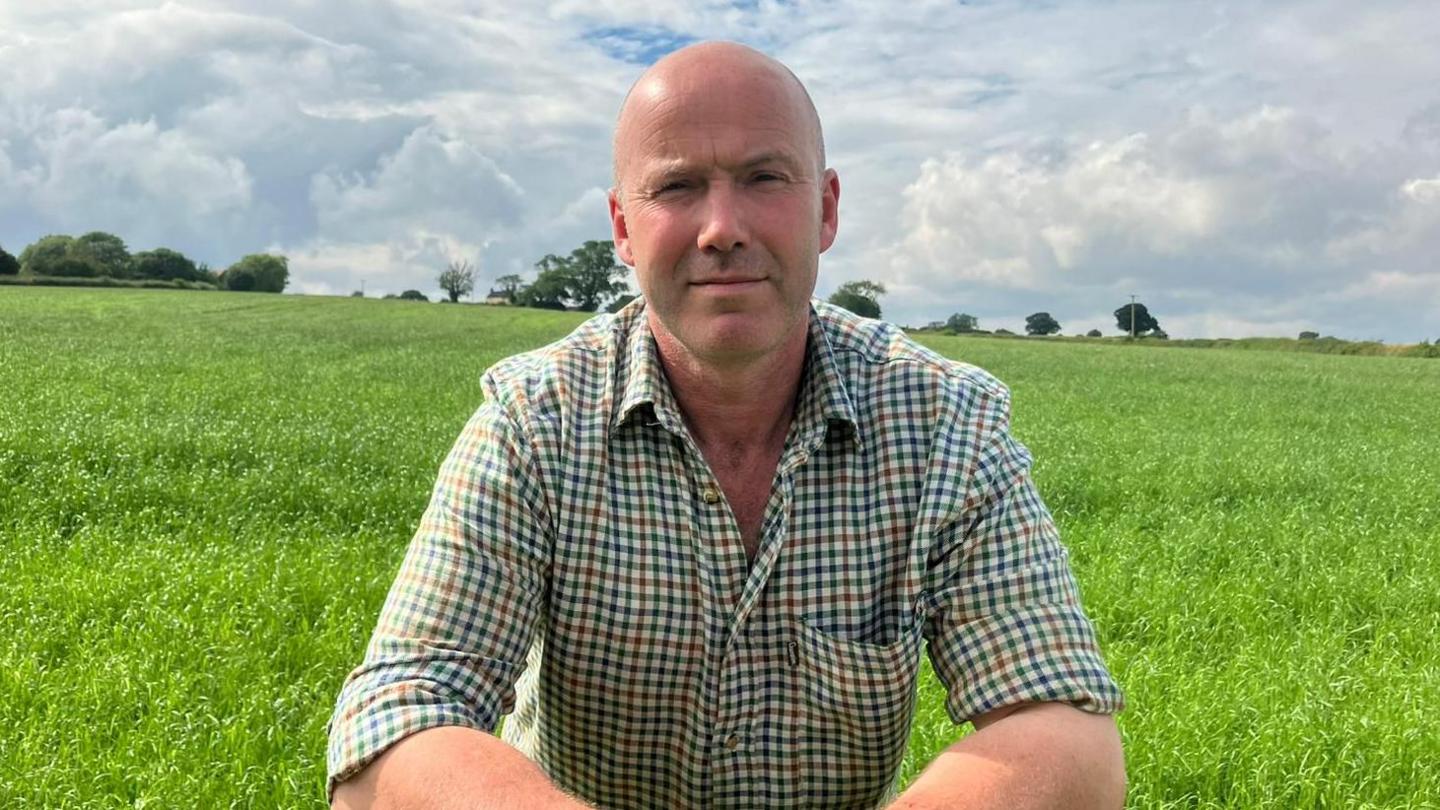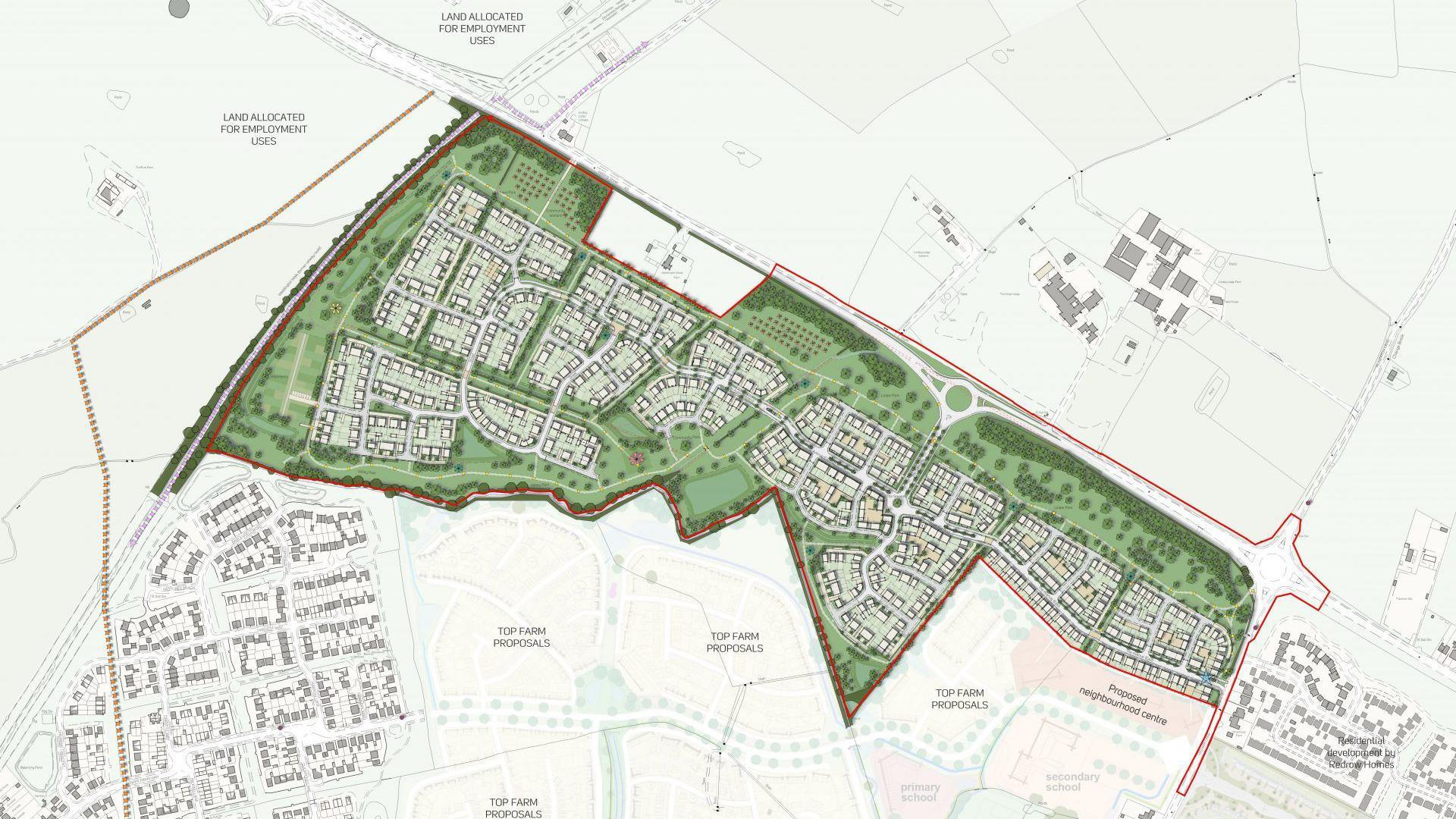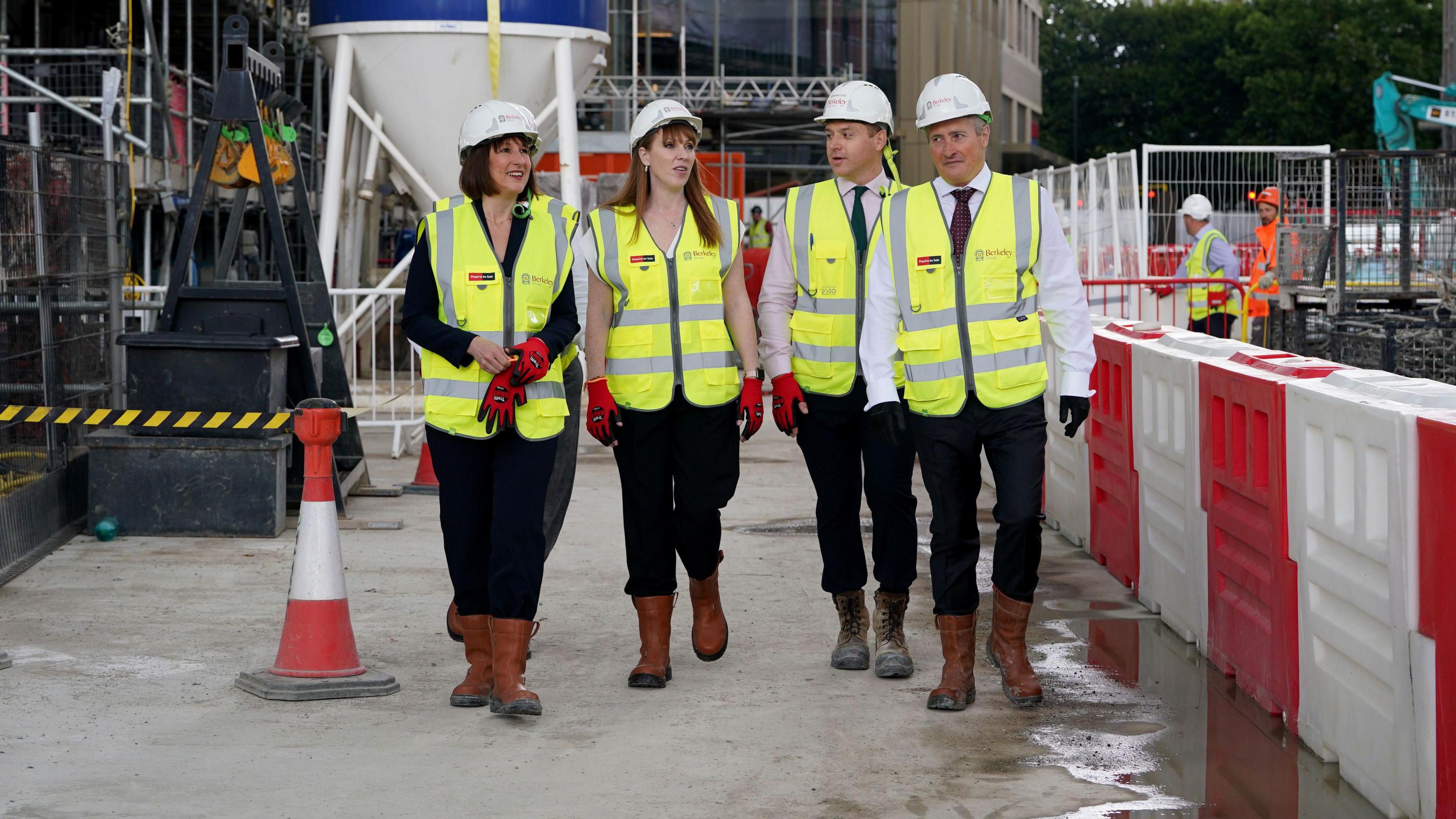Nuneaton braced for housing battle with Labour

Farmer Charlie Goadby is worried about what Labour's housing plans mean for landowners like him
- Published
On the outskirts of Nuneaton, an expanse of farmland spanning more than 200 acres has been spared from development, for now.
Just this month, two proposals to build up to 1,350 new homes were rejected by government planning inspectors.
Whatever their merits, these planning applications had been seven years in the making altogether before these decisions were made.
Building homes, or deciding not to, can be a slow process - but now a political battle is brewing over plans to speed it up.
The new Labour government said it would “get Britain building again” by bringing back mandatory housebuilding targets and reforming the planning system.
Boosting housing is the centrepiece of Labour’s plan to reboot the UK’s sluggish economy.
In her first speech as chancellor, external, Rachel Reeves said she was not afraid to “rouse voices of local opposition” to build more than 1.5 million new homes within the next five years.
And some of those voices could come from her own party.
'Not about nimby-ism'
Labour councillor Rob Roze is the cabinet member in charge of planning at Nuneaton and Bedworth Borough Council.
He told the BBC he was concerned about a possible “broad brush” approach to housebuilding under the new government.
“And that’s something I’m hearing from residents on the doorstep. It’s not really that people are against the houses as such," he said.
“There is a limited amount of nimby-ism, but it only scratches the surface.”
By nimby-ism, he means the act of opposing development, of saying not in my back yard.
Is Mr Roze a nimby?

Planning inspectors rejected a Nuneaton housing proposal by Richborough Estates
“No absolutely not,” Mr Roze said. “If it needs to be in our back yard, it can be. But the issue is what comes around that.”
He said new housing needed to come with vital infrastructure, such as schools, hospitals and green space for residents.
While the cabinet member for planning said he welcomed the Labour government’s plans to give more powers to local authorities, he wanted to see more detail about compulsory housing-building targets.
“This is where I see my role as almost as internal opposition in saying this is an area we need to stand for and this is the housing supply we can take on,” Mr Roze said.
“Development is good, but it needs to be in the benefit of people who move to those houses as well as existing residents.”
Housing and the green belt puts politics on tricky turf
- Published3 July 2024
Reeves to bring back housebuilding targets
- Published8 July 2024
Local authorities review the need for housing in a local plan.
Nuneaton and Bedworth Borough Council is working on a revised local plan, external and the draft version estimates almost 10,000 new homes will need to be built by 2039.
'Threat to green belt'
The local plan has been changed to remove guidance which says it is “necessary to allocate development on greenfield sites”.
That appears to be at odds with Labour’s plans to use more poor quality areas of the green belt, dubbed “grey belt”.
The local Conservatives said, external: “The recent change in government nationally presents a greater threat to the green belt in Nuneaton and Bedworth than we have ever seen before”.
And some local farmers I spoke to shared those concerns.

Rachel Reeves said Labour wouldn't duck "difficult choices" about housing
Charlie Goadby grows crops and milks cows on his family’s 1,400 acre farmland, near Nuneaton.
He said his family’s farm was “untouched” by development and he “would be strongly opposed to any building work being done on any of our land”.
Mr Goadby said farmland was needed for food production to meet the demand of the world's growing population.
With grey belt in Labour’s sights, Mr Goadby fears the government is prioritising housing over food security.
“They’ll be people out there - surveyors and housing developers - who really want a piece of land,” he said.
“And they’ll be using every trick in the book to make that land look less good. They’ll turn green belt into grey belt.”
In the King’s Speech, external this week, Labour made clear housing is a fight it is prepared to pick in government.
A new law to “speed up and streamline the planning process to build more homes” has been promised.
With that, the government’s advance on hostile territory has begun, and like timescales for planning decisions, its battle with the blockers could be a long one.
Related topics
- Published17 July 2024

- Published17 July 2024

- Published17 July 2024
